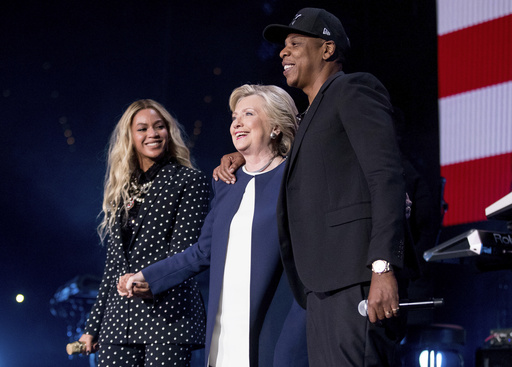WASHINGTON — As the 2024 campaign approaches its climax, prominent Democrats are rallying support for Kamala Harris with the help of notable celebrities including Bruce Springsteen, Taylor Swift, and Beyoncé. In contrast, Donald Trump is backed primarily by Kid Rock, Waka Flocka Flame, and Hulk Hogan.
The Democratic Party has consistently leveraged celebrity endorsements to energize voters during critical campaign moments. This tactic has become increasingly vital, especially in the wake of Trump’s political ascent, which pushed many stars—regardless of their usual political silence—into the spotlight to challenge his leadership. While the excitement of star-studded events can boost morale, previous experiences, such as Hillary Clinton’s 2016 campaign, suggest that this enthusiasm can sometimes overshadow deeper issues concerning the candidate.
In a lead-up to the October 20 election, Harris gathered supporters in Jonesboro, Georgia, where music legend Stevie Wonder inspired the crowd by singing Bob Marley’s “Redemption Song.” Shortly after, Harris joined forces with former President Barack Obama at a prominent rally in Atlanta that showcased performances by Springsteen alongside notable speeches from filmmakers like Spike Lee and actor Samuel L. Jackson. The campaign continued to captivate audiences in Texas with a performance by Willie Nelson and a speech from Beyoncé.
Additionally, Minnesota Governor Tim Walz, who shares the ticket with Harris, has also reaped the benefits from celebrity engagements. Music artist James Taylor took the stage alongside Walz in North Carolina earlier this month, while both he and Harris participated in an event in Michigan with rising star Maggie Rogers performing multiple songs.
One attendee at the recent rally in Ann Arbor, Ashley Oberheide, expressed her joy over the musical acts supporting Harris while reaffirming her commitment to Harris herself. “Maggie Rogers is an added bonus,” she noted.
Audrey Hudson, a first-time voter studying at the University of Michigan, described her presence at the rally as a blend of civic duty and the opportunity to see a favored artist. She articulated her appreciation for Rogers, stating, “She’s had a huge impact on me,” and emphasized that such artists can resonate more deeply with younger voters, potentially influencing their voting behaviors.
Rachel Lieberman, a resident of Ann Arbor, mentioned this rally was her third event supporting Harris, believing that Rogers’ participation could enhance outreach to younger demographics. “I think it’s all part of getting the younger generations mobilized to vote,” she said.
The campaign is not solely relying on star-studded performances. After comedian Tony Hinchcliffe appeared at a Trump rally and made derogatory comments about Puerto Rico, Harris’ campaign caught the attention of several influential Puerto Rican figures, including rapper Bad Bunny, actress Jennifer Lopez, and singer Ricky Martin—who collectively command a vast social media following.
Events under Harris’ “When We Vote We Win” concert series are strategically designed to motivate early voting, especially in pivotal battleground states. More celebrity endorsements are anticipated as the campaign draws closer to election day.
Later this week, her rally in Wisconsin is set to feature performances from artists like Gracie Abrams and Mumford & Sons, while a separate Arizona event boasts Los Tigres del Norte, a popular norteño band. Harris will conclude her campaign week with a rally in Las Vegas that will include a performance from the beloved band Maná and a speech from Lopez.
The 2020 election was unlike previous cycles, as the pandemic limited large public gatherings, leading to virtual celebrity endorsements for Joe Biden, which ultimately helped him prevail over Trump.
While Trump still attracts support from notable figures within his core voter base, such as singer Lee Greenwood and former athletes, he does not match the surge of celebrity participation seen in Harris’ campaign efforts. Instead, Trump often serves as the main draw at his events, and if distractions arise from controversial comments made by his supporters, it can complicate his campaign’s message.
The vibrant atmosphere from celebrity-infused events does raise hopes among Democrats, yet it can obscure underlying issues. The pitfalls of relying heavily on celebrity involvement were on display during Clinton’s last-minute campaign push in 2016, which featured high-profile performances from artists like Jon Bon Jovi and Lady Gaga while she strove to invigorate energetic crowds.
Despite the lively gatherings, Clinton experienced significant losses in key states like North Carolina and Florida, resulting in Trump’s unexpected victory. The environment, buzzing with star power, did not translate into electoral success—a sobering reminder of the complexities of campaign strategy and voter mobilization as this election cycle progresses.
